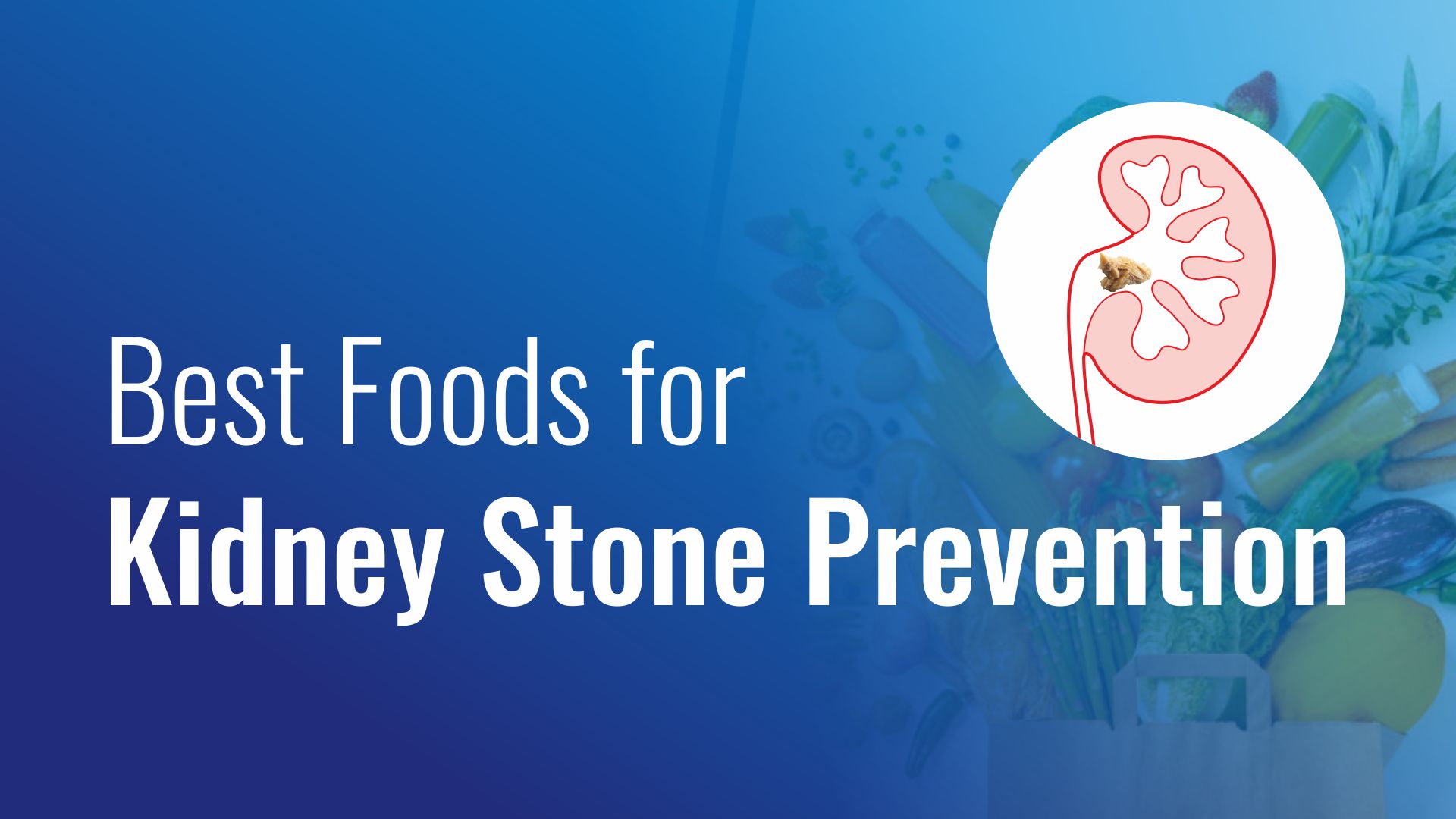Kidney stones are a common and painful condition that can often be prevented with good hydration & the right dietary choices. Good hydration and moderation of diet are two essential strategies for reducing the risk of kidney stones. By focusing on these areas, you can maintain a healthy urinary system and minimize the chances of developing stones. This article explores the best foods for kidney stone prevention and provides practical tips on how to incorporate them into your diet.
Good Hydration is the Foundation of Kidney Stone Prevention.
Proper hydration is the cornerstone of kidney stone prevention. When you’re well-hydrated, your urine becomes more diluted, which means the concentration of stone-forming substances like calcium, oxalate, and uric acid is lower. This reduces the likelihood of these substances crystallizing and forming stones.
Moderation of Diet is a Balanced Approach to Prevent Kidney Stones in addition to staying hydrated.
A balanced diet plays a crucial role in preventing kidney stones. Here’s how you can modify your diet to keep kidney stones at bay:
- Avoid a High-Protein Diet: While protein is an essential part of a balanced diet, consuming too much animal protein can increase the risk of kidney stones. Animal proteins such as red meat, poultry, fish, and eggs can raise the levels of calcium, oxalate, and uric acid in your urine, all of which contribute to stone formation. To reduce this risk, moderate your intake of animal proteins.
- Manage Oxalate-Rich Foods: Oxalate is a naturally occurring substance found in foods like spinach, beets, nuts, and chocolate. When consumed in excess, oxalate can bind with calcium in the urine to form calcium oxalate stones, the most common type of kidney stone. Instead of completely eliminating these foods, focus on moderation.
- Incorporate Citrate and Magnesium: Citrate, which is found in citrus fruits like lemons and oranges, and magnesium, found in leafy greens and whole grains, play a protective role against kidney stones. Citrate helps prevent stones by binding with calcium, while magnesium reduces oxalate absorption. Including these nutrients in your diet can support kidney health and reduce the likelihood of stone formation.
- Limit Sodium Intake: High sodium levels in your diet can increase the amount of calcium in your urine, leading to the formation of kidney stones. Processed foods, salty snacks, and fast foods are common sources of excessive sodium and should be consumed in moderation.
Conclusion
Preventing kidney stones is largely about making mindful dietary choices. By staying well-hydrated and moderating your intake of certain foods, you can significantly reduce your risk of developing kidney stones. Remember, it’s not just about avoiding certain foods; it’s also about incorporating beneficial ones, such as citrus fruits, leafy greens, and whole grains, into your daily routine. By following these guidelines, you can support your kidney health and enjoy a diet that helps prevent kidney stones.
FAQ
1. What is the best way to stay hydrated to prevent kidney stones?
Drinking plenty of water is the most effective way to stay hydrated and prevent kidney stones.
2. Why should I avoid a high-protein diet if I have kidney stone risk?
A high-protein diet can increase the excretion of calcium, oxalate, and uric acid in urine, raising the risk of kidney stones.
3. Can I still eat oxalate-rich foods like spinach and nuts?
Yes, you can eat oxalate-rich foods in moderation.
4. How does citrate help prevent kidney stones?
Citrate binds with calcium in the urine, preventing the formation of calcium oxalate stones.
5. What foods are high in citrate?
Citrus fruits like lemons and oranges are high in citrate.
6. Why is it important to limit sodium intake for kidney stone prevention?
High sodium levels can increase calcium in urine, leading to stone formation.
7. What role does magnesium play in preventing kidney stones?
Magnesium helps reduce oxalate absorption, lowering the risk of stone formation.
8. Are there any drinks that can help prevent kidney stones?
Yes, drinking lemon water or orange juice can increase citrate levels, which helps prevent kidney stones.


Leave a Reply